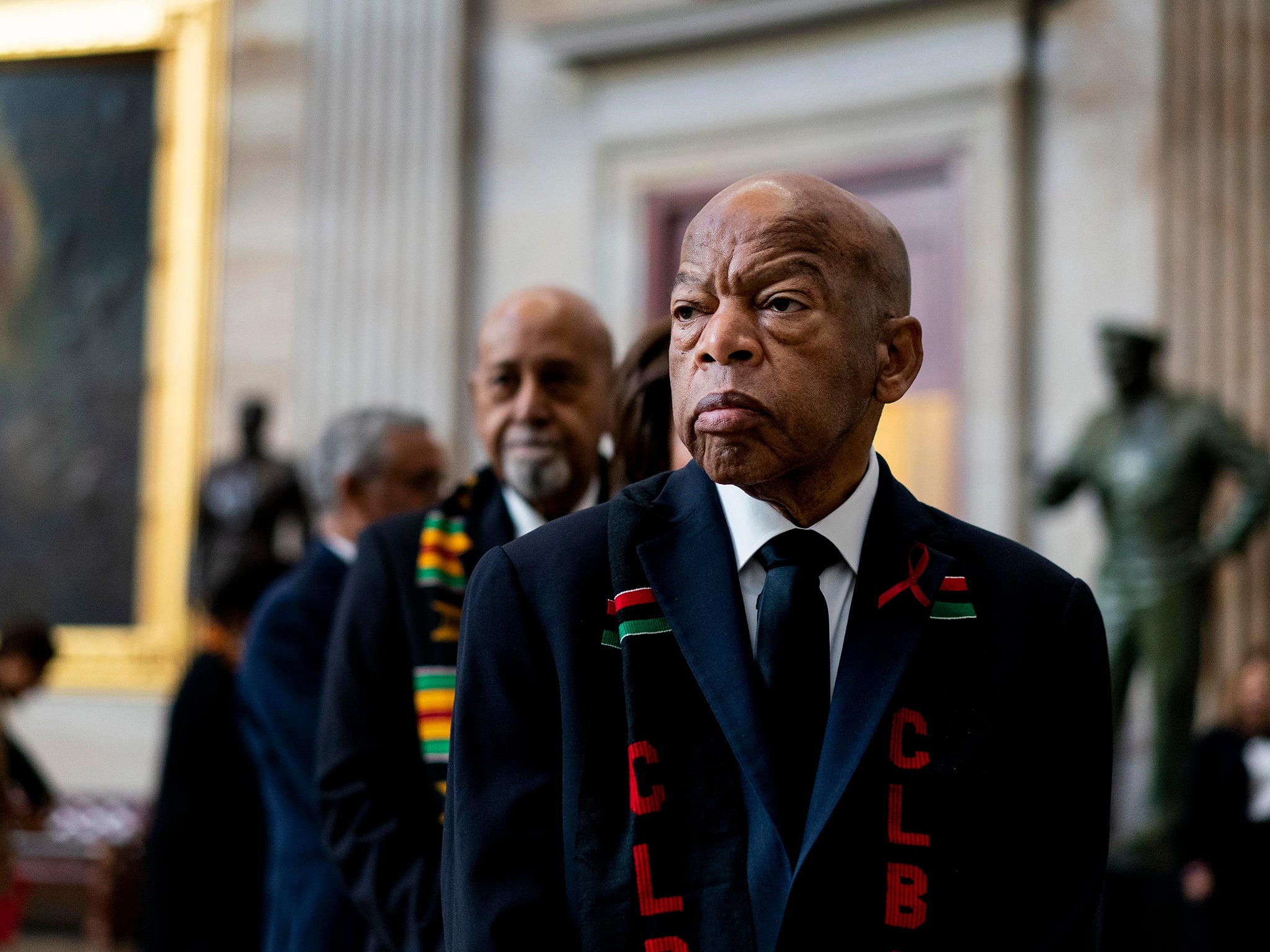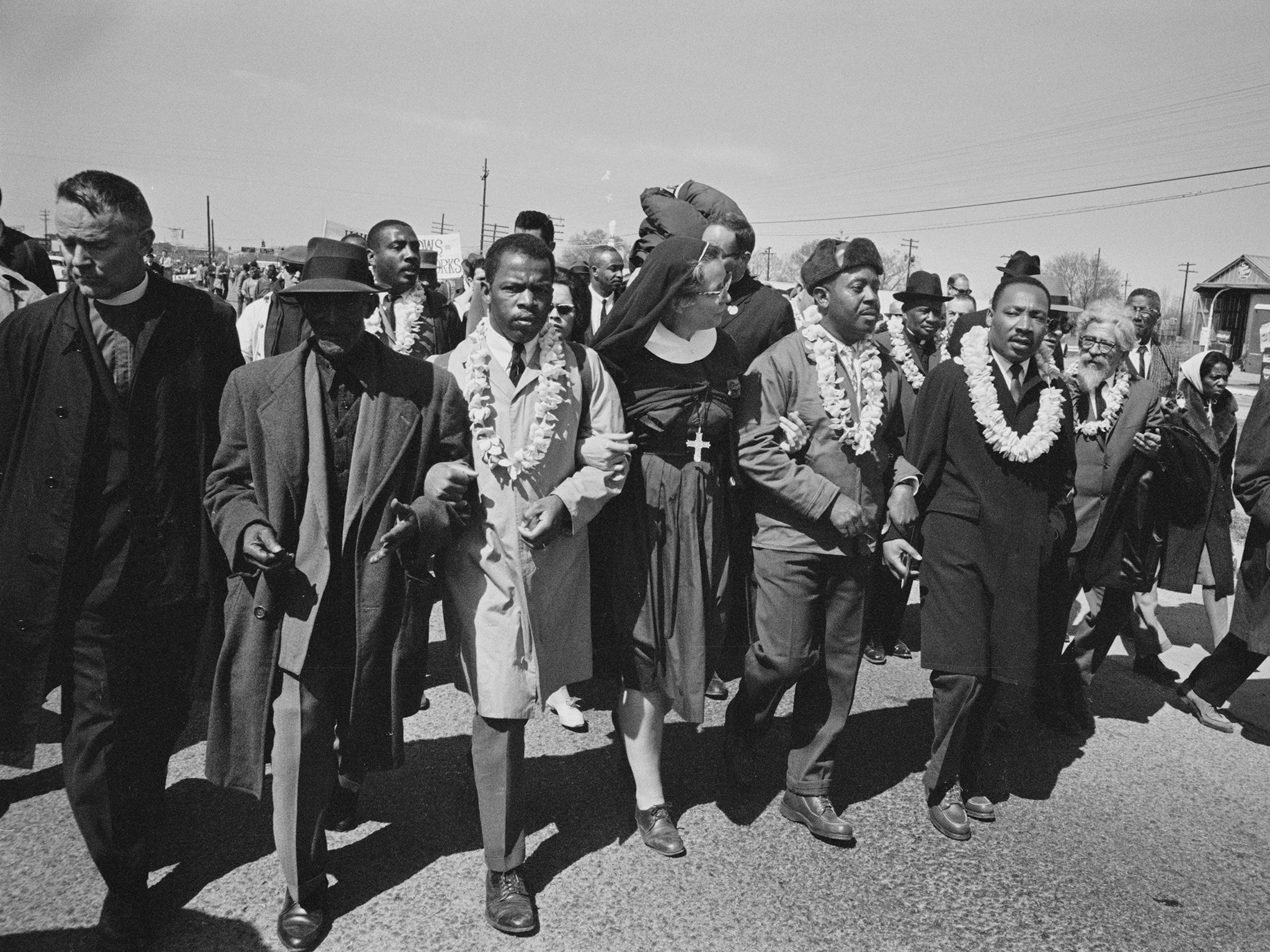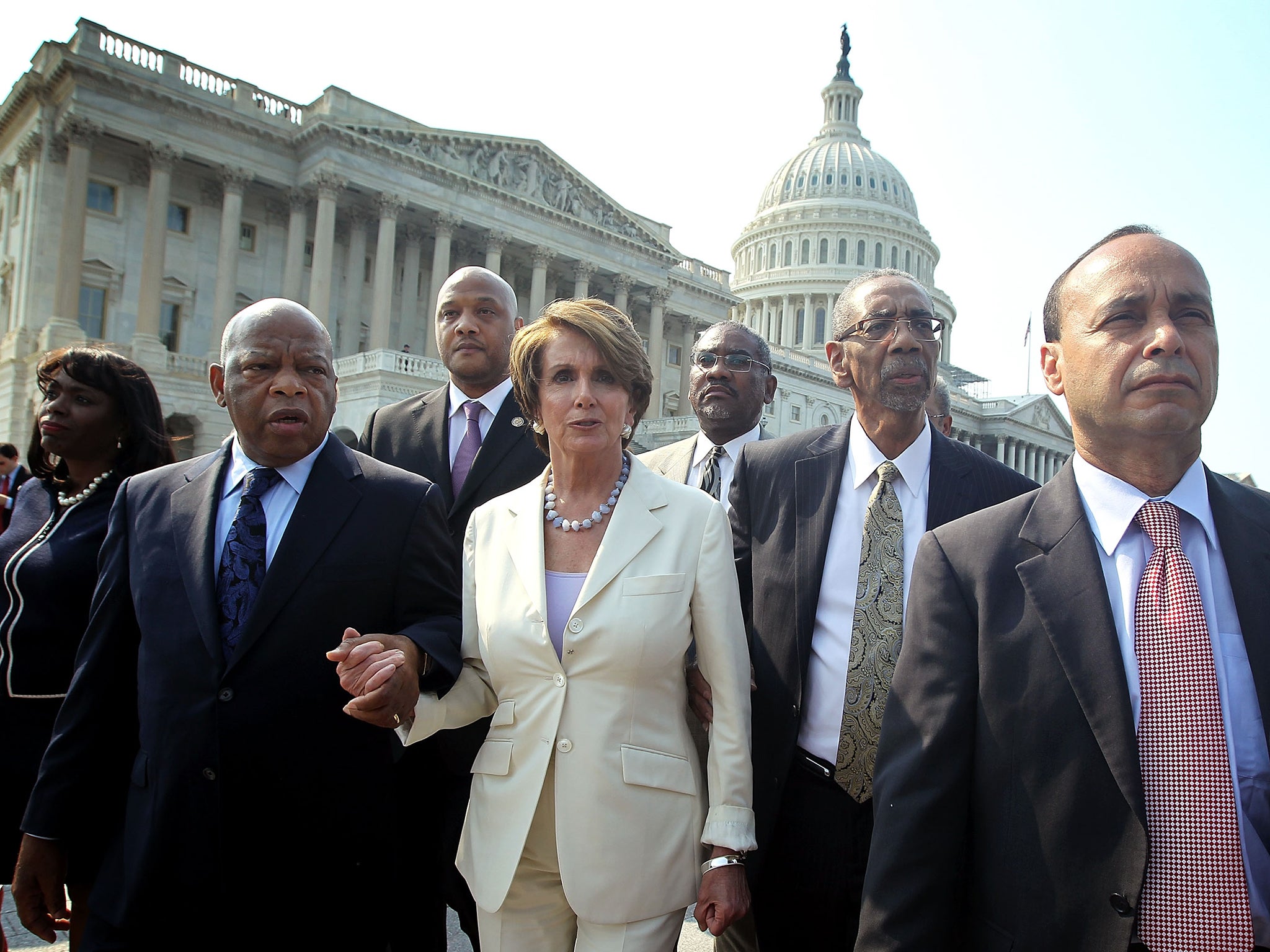John Lewis: Prominent civil rights activist diagnosed with pancreatic cancer
‘I have never faced a fight quite like the one I have now’

Your support helps us to tell the story
From reproductive rights to climate change to Big Tech, The Independent is on the ground when the story is developing. Whether it's investigating the financials of Elon Musk's pro-Trump PAC or producing our latest documentary, 'The A Word', which shines a light on the American women fighting for reproductive rights, we know how important it is to parse out the facts from the messaging.
At such a critical moment in US history, we need reporters on the ground. Your donation allows us to keep sending journalists to speak to both sides of the story.
The Independent is trusted by Americans across the entire political spectrum. And unlike many other quality news outlets, we choose not to lock Americans out of our reporting and analysis with paywalls. We believe quality journalism should be available to everyone, paid for by those who can afford it.
Your support makes all the difference.Representative John Lewis, a civil rights icon known for promoting voting rights, announced Sunday that he has stage 4 pancreatic cancer and vowed to fight it as he has fought for racial equality and other human rights throughout his life.
Mr Lewis, who has served in congress since 1987, said doctors detected the disease this month during a routine medical visit and subsequent tests. He said he later received confirmation of the diagnosis.
One per cent of patients live five years after a diagnosis of stage 4 pancreatic cancer, according to Johns Hopkins Medicine. The average patient with that diagnosis lives for about a year. Pancreatic cancer was the third most common cause of death from cancer in 2019, according to the National Cancer Institute.
“While I am clear-eyed about the prognosis, doctors have told me that recent medical advances have made this type of cancer treatable in many cases, that treatment options are no longer as debilitating as they once were, and that I have a fighting chance,” Mr Lewis said in a statement.
Mr Lewis said he planned to return to Washington to continue working and undergo treatment over the next several weeks. He said he might miss some votes during that time.
“I have been in some kind of fight – for freedom, equality, basic human rights – for nearly my entire life,” Mr Lewis said. “I have never faced a fight quite like the one I have now.”
Mr Lewis has been called “the conscience of the US Congress”. His storied national legacy dates back to the fight for African Americans' civil rights, when he organised sit-ins at segregated lunch counters and was beaten by pro-segregationists after he sat in bus seats reserved for white people on the Freedom Rides.
As chairman of the Student Nonviolent Coordinating Committee, Mr Lewis was among the “Big Six” leaders who organised the March on Washington in 1963. In a speech there, he criticised the government for not doing more to protect black people in the South.
“Where is the political party that will make it unnecessary to march in the streets of Birmingham?” Mr Lewis asked.
A representative for Mr Lewis has said the congressman was arrested 40 times for various protests during the civil rights era. He has been arrested several other times since, including in 2013 at a rally for immigration reform.
On what became known as Bloody Sunday in 1965, Mr Lewis and Hosea Williams of the Southern Christian Leadership Conference led about 600 silent people two-by-two from Selma, Alabama, to the state capital of Montgomery in a demonstration for voting rights. About 150 state troopers and other law enforcement met the marchers on the Edmund Pettus Bridge in Selma and ordered them to disperse.

Before a two-minute warning ran out, law enforcement injured 58 people with clubs, bullwhips and tear gas. Mr Lewis's skull was fractured in the attack.
Six months later, President Lyndon Johnson signed the Voting Rights Act of 1965.
Mr Lewis was elected to the Atlanta City Council in 1981 and became the representative for Georgia's fifth Congressional District five years later. Mr Lewis is the senior chief deputy whip for the Democratic Party in the House and serves on the Ways and Means Committee.

Former Democratic presidents Barack Obama and Bill Clinton were among scores of people who sent Mr Lewis wishes on Twitter on Sunday.
“If there's one thing I love about @RepJohnLewis, it's his incomparable will to fight,” said Mr Obama, who in 2011 awarded Mr Lewis the Presidential Medal of Freedom. “I know he's got a lot more of that left in him.”
“If there's anyone with the strength and courage to fight this, it's you, John,” Mr Clinton wrote. “Hillary and I love you, and we join with millions of other Americans in praying for you and your family.”
Candidates for the Democratic presidential nomination also praised the congressman: South Bend, Indiana, mayor Pete Buttigieg called Mr Lewis “a living example of strength”; businessman Andrew Yang said Mr Lewis would defeat his cancer “like you have fought so many times before”; and senator Elizabeth Warren, said she knew Mr Lewis would “continue making good trouble”, invoking a phrase the congressman often uses to describe his advocacy for equality.
House speaker Nancy Pelosi shared a photo of herself with Mr Lewis.
“John, know that generations of Americans have you in their thoughts & prayers as you face this fight,” she wrote. “We are all praying that you are comfortable. We know that you will be well.”
The Washington Post
Join our commenting forum
Join thought-provoking conversations, follow other Independent readers and see their replies
Comments